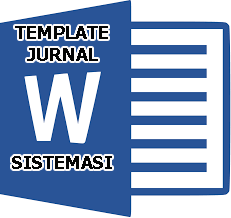Implementation of the MOORA Method in the Library Book Procurement Decision Support System
Abstract
Full Text:
PDFReferences
I. Ananda, “Konsep Tata Ruang Perpustakaan Universitas Muhammadiyah Makassar Berdasarkan Standar Nasional Perpustakaan Perguruan Tinggi Tahun 2017,” UIN Alauddin Makassar, Makassar, 2022.
F. Y. Liriwati, Armizi, and M. Ilyas, “Administrasi Perpustakaan Dalam Pendidik,” Jurnal Literasiologi, vol. 8, no. 2, pp. 120–126, Jul. 2022.
R. Ghaniy and R. D. Putra, “Penerapan Metode Topsis dalam Penentuan Pengadaan Judul Buku di Perpustakaan,” Jurnal TEKNOIS, vol. 11, no. 2, pp. 123–139, Nov. 2021, doi: 10.36350/jbs.v11i2.123.
E. F. Febriana, “Sistem Pendukung Keputusan Pengadaan Buku sebagai Bahan Pustaka Perpustakaan menggunakan Metode MOORA,” Universitas Islam Negeri Maulana Malik Ibrahim, Malang, 2020.
A. Aziz, “Implementasi Multiple Perspectives dalam Rekomendasi Pengadaan Buku Perpustakaan Berbasis MOORA (Multi-Objective Optimization on the Basis of a Ratio Analysis) (Studi Kasus: Perpustakaan UIN Suska Riau),” Universitas Islam Negeri Sultan Syarif Kasim Riau, Pekanbaru, 2022.
H. I. Ariq and A. Pariddudin, “Penerapan Metode Topsis Untuk Menentukan Buku Favorit Dalam Pengadaan Buku Perpustakaan,” Jurnal TEKNOIS, vol. 13, pp. 146–154, 2023, doi: 10.36350/jbs.v13i2.214.
S. H. A. Halim, Y. Yunus, and Sumijan, “Prioritas Pengadaan Buku Berdasarkan Data Kerusakan dan Kehilangan Menggunakan Metode Simple Additive Weighting,” Jurnal Informasi dan Teknologi, pp. 152–159, Sep. 2021, doi: 10.37034/jidt.v3i3.128.
D. Firmansah, “Sistem Penunjang Keputusan Pemilihan Ebook Metode Moora Pada Alfa Library,” Seminar Nasional Mahasiswa Fakultas Teknologi Informasi (SENAFTI) Jakarta-Indonesia, 2022, [Online]. Available: https://senafti.budiluhur.ac.id/index.php
C. G. Pramesi, “Manajemen Program Corporate Social Responsibility (CSR) Djarum Beasiswa Plus Dalam Mengembangkan Soft Skill Beswan Djarum 2021/2022 (Studi Kasus Program Leadership Development Dan Nation Building),” Universitas Nasional, Jakarta, 2022.
I. Rosita and D. Apriani, “Penerapan Metode Moora Pada Sistem Pendukung Keputusan Pemilihan Media Promosi Sekolah (Studi Kasus: SMK Airlangga Balikpapan),” Jurnal Metik, vol. 2, no. 2, pp. 55–61, 2020.
N. Nurhaliza and R. Adha, “Perbandingan Metode AHP, TOPSIS, dan MOORA Untuk Rekomendasi Penerima Beasiswa Kurang Mampu,” Jurnal Ilmiah Rekayasa dan Manajemen Sistem Informasi, vol. 8, no. 1, pp. 23–30, 2022.
R. Belmiro Virgiant and N. Rochmawati, “Implementasi Metode MOORA Untuk Penentuan Wisata Surabaya Terbaik Di Masa Pandemi COVID-19,” Journal of Informatics and Computer Science, vol. 3, no. 3, 2022.
E. Budiman, J. A. Widians, M. Wati, and N. Puspitasari, “Normalized Data Technique Performance for Covid-19 Social Assistance Decision Making,” 2020 3rd International Conference on Information and Communications Technology, ICOIACT 2020, pp. 493–498, Nov. 2020, doi: 10.1109/ICOIACT50329.2020.9332089.
L.-E. Pommé, R. Bourqui, R. Giot, and D. Auber, “Relative Confusion Matrix: Efficient Comparison of Decision Models,” HAL Science, 2022, doi: 10.1109/IV56949.2022.00025ï.
I. Purwita Sary, E. Ucok Armin, and S. Andromeda, “Performance Comparison of YOLOv5 and YOLOv8 Architectures in Human Detection Using Aerial Images,” Ultima Computing : Jurnal Sistem Komputer, vol. 15, no. 1, pp. 8–13, 2023.
I. Barranco-Chamorro and R. M. Carrillo-García, “Techniques to deal with off-diagonal elements in confusion matrices,” Mathematics, vol. 9, no. 24, Dec. 2021, doi: 10.3390/math9243233.
D. Suryani, A. Yulianti, E. L. Maghfiroh, and J. Alber, “Klasifikasi Kualitas Produk Kelapa Sawit Menggunakan Metode Naïve Bayes,” SISTEMASI: Jurnal Sistem Informasi, vol. 11, no. 1, pp. 251–259, 2022.
G. S. Mahendra, A. Lee, G. Dharma, and S. Muni, “Sistem Pendukung Keputusan Menggunakan Metode FUCOM-MOORA untuk Penentuan Maskapai Favorit,” SISTEMASI: Jurnal Sistem Informasi, vol. 10, no. 3, pp. 562–574, 2021.
Article Metrics
Abstract view : 469 timesPDF - 130 times
Refbacks
- There are currently no refbacks.

This work is licensed under a Creative Commons Attribution-ShareAlike 4.0 International License.









